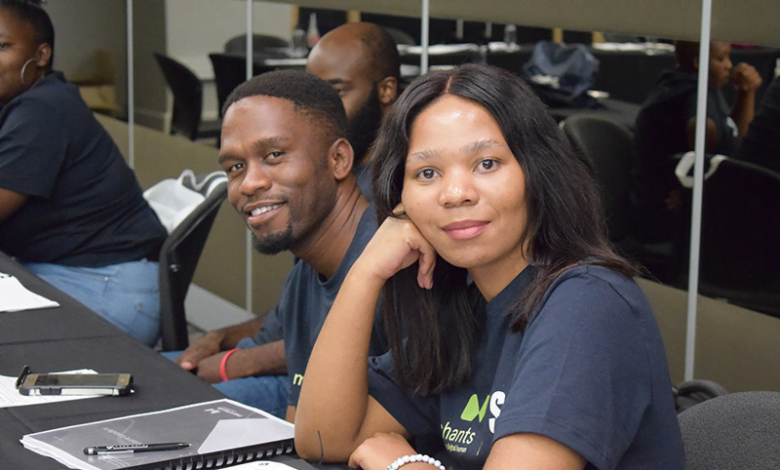Leveraging technology to promote literacy in rural areas
To bridge the digital gap between urban and rural areas, South Africa's Thembiso Magajana founded Social Coding in 2017, a non-profit organization dedicated to recruiting, training and employing unemployed youth from rural areas to run digital literacy programs in local high schools.

Farai Diza, in Johannesburg
South Africa is one of the few African countries making steady progress thanks to technology. Several companies and organizations have incorporated the fourth industrial and digital revolution into their processes. However, the vast majority of people living in rural areas are struggling to adapt to this change due to a lack of access to digital culture.
Coming from a small rural community, Thembiso Magajana has seen first-hand the challenges faced by families struggling to make ends meet. « Financial stability was always a constant concern in my youth, » she says. But her innate curiosity for numbers and problem-solving led her to pursue a career in finance. Not because it was her calling, but because she saw it as a way to provide for her family and secure her future.
Her real passion has always been bridging the technology gap. So she went back to computers and robotics.
In 2017, she founded Social Coding, a non-profit organization that recruits, trains and employs unemployed young people from rural areas to deliver digital literacy programs in local high schools.
According to Thembiso Magajana, « Social Coding offers comprehensive training programs aimed at equipping unemployed young people with the digital skills they need to empower their communities. Its services include coding workshops, robotics training and virtual reality experiences that enable students to embrace technology and bridge the digital gap. Since its inception, Social Coding has positively impacted more than 6,000 people across the country.
The young South African describes a social entrepreneur as someone who strives to create positive social change through innovative and sustainable solutions. « Unlike traditional entrepreneurship, social entrepreneurs place as much importance on the lasting impact on society as on profitability, » she explains.
Social Coding currently has a team of fifteen. Since its inception, the organization has expanded its programs to four provinces in South Africa and recently launched in Zambia in partnership with Absa, a Zambian bank, reaching the most remote and marginalized communities on the continent.

Her determination to go beyond South Africa’s borders knows no bounds. She hopes that Social Coding will spread its wings to many other countries. Convinced that coding, robotics and virtual reality are powerful tools, Thembiso Magajana wants to empower people to navigate and thrive in the digital age. « By providing training in these areas, we are bridging the economic and technological gap. By equipping people with the necessary skills, we are empowering them to participate in the Fourth Industrial Revolution and seize new economic opportunities.

As a social entrepreneur, « I want to be remembered as someone who has made a real and lasting impact on the lives of people from marginalized communities. I want to be recognized for my unwavering commitment to empowering others and bridging the gap between urban and rural areas. Personally, I hope to be remembered as a compassionate leader who has inspired and motivated others to pursue their dreams, break glass ceilings and create opportunities for themselves and their communities ». She was recently awarded the Social Entrepreneur Award in recognition of her outstanding work. A testament to her determination to leverage technology to make a lasting difference to the lives of rural people.
Find out more : https://www.socialcodingsa.com
The website of the Association for the Development of Education in Africa, which offers cloud-based online courses designed to educate rural communities :
https://www.adeanet.org/en/blogs/cloud-enabled-e-learning-rural-education-rural-settings






